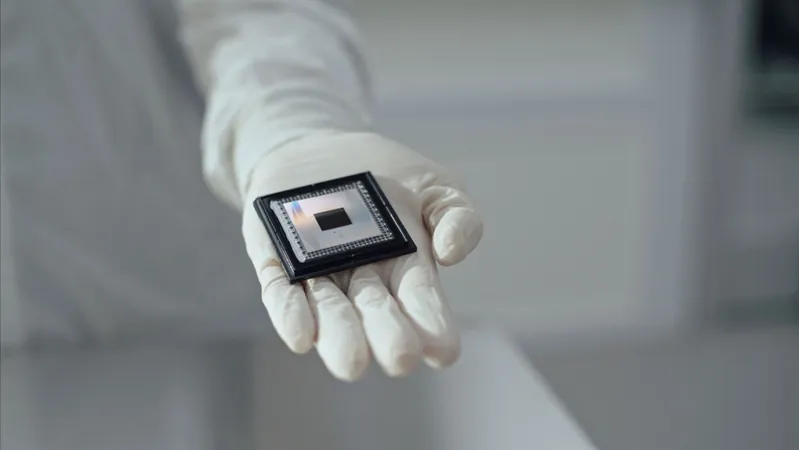
Google Unleashes Quantum Computing Breakthrough with Revolutionary New Chip
2024-12-09
Author: Olivia
In a groundbreaking announcement this Monday, Google revealed it has made significant strides in the realm of quantum computing, thanks to a next-generation chip known as Willow. This chip has astonishing capabilities—solving a complex mathematical problem in just five minutes, a feat that would take traditional computers longer than the entire history of the universe!
The race for quantum supremacy isn't confined to Google alone; tech titans like Microsoft and IBM are aggressively pursuing quantum computing, drawn by the promise of unprecedented computational speeds that far exceed what we have today. Although the specific mathematical challenge addressed by Google’s new chip does not offer immediate commercial applications, the company is optimistic about the potential of quantum technology in transforming fields like medicine, battery technology, and artificial intelligence.
The Willow Chip's Design
The core of the Willow chip comprises 105 “qubits,” which are the fundamental units of quantum computers. Despite their impressive speed, qubits are notoriously error-prone, influenced by minuscule disturbances such as subatomic particles from cosmic events. This challenge has prompted ongoing research since the 1990s to develop robust quantum error-correction techniques.
In a recent publication in the journal Nature, Google’s research team detailed a significant advancement. They’ve devised a method to connect the qubits on the Willow chip such that error rates decrease even as the number of qubits increases. Remarkably, they can also perform real-time error correction—an essential milestone in making quantum computers viable for practical applications.
Statements from Google’s Team
"We have surpassed the break-even point," declared Hartmut Neven, the head of Google Quantum AI, in an exclusive interview.
In the past, Google faced skepticism from IBM regarding its quantum computing claims. In 2019, IBM contested Google's assertion that its quantum chip could resolve a problem that would take a classical computer 10,000 years. IBM argued that, based on different parameters, this could be achieved in just two-and-a-half days. However, Google has reassessed and states that even under the most favorable conditions for classical computers, they would still need an astronomical billion years to match the Willow's output.
Commitment to Reliability
Despite competitors investing in chips with a higher number of qubits, Google remains committed to enhancing the reliability of its qubits. Anthony Megrant, the chief architect for Google Quantum AI, emphasized that producing dependable qubits takes precedence over merely increasing their numbers.
New Fabrication Facility
To further this mission, Google has transitioned from using a shared facility at the University of California, Santa Barbara to establishing its own dedicated fabrication plant for the Willow chips. This new facility aims to accelerate chip production, allowing them to be tested in sophisticated cooling systems known as cryostats. Megrant stated, "If we have a good idea, we want our team to quickly test it in the clean room and cryostats to foster a rapid cycle of learning."
In summary, Google’s latest innovation in quantum computing not only showcases the incredible potential of this technology but also sets the stage for future advancements that could revolutionize various scientific fields. As Google continues to push the boundaries, the quest for quantum supremacy enters an exciting new chapter. Will this be the breakthrough that changes everything? Stay tuned!









 Brasil (PT)
Brasil (PT)
 Canada (EN)
Canada (EN)
 Chile (ES)
Chile (ES)
 España (ES)
España (ES)
 France (FR)
France (FR)
 Hong Kong (EN)
Hong Kong (EN)
 Italia (IT)
Italia (IT)
 日本 (JA)
日本 (JA)
 Magyarország (HU)
Magyarország (HU)
 Norge (NO)
Norge (NO)
 Polska (PL)
Polska (PL)
 Schweiz (DE)
Schweiz (DE)
 Singapore (EN)
Singapore (EN)
 Sverige (SV)
Sverige (SV)
 Suomi (FI)
Suomi (FI)
 Türkiye (TR)
Türkiye (TR)